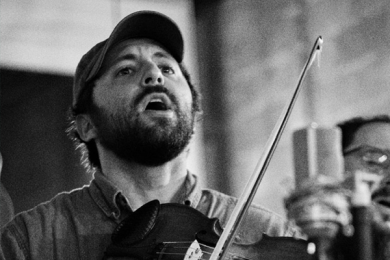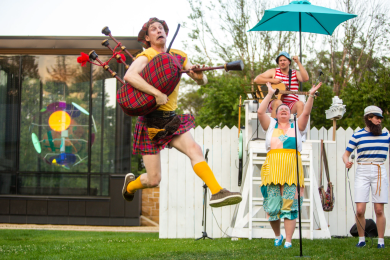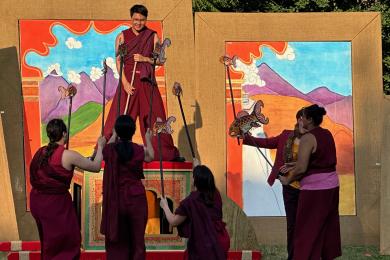Fringe Festival changes the rules
News
This year, the Fringe Festival will change up their lottery process, and I think the results may be uniquely interesting.
For those who live under rocks, the Minnesota Fringe Festival is an entirely unjuried performance festival where the slots to perform are given away through a lottery. In years past, the system has involved one large lottery for everyone and a series of sub-lotteries that increased the chances of artists in certain under-represented or desired categories to earn slots. Kind of an affirmative action system for shows from rural Minnesota, or artists of color, or out-of-towners, or shows for kids. It was a way to ensure diversity at the festival.
So, first of all, the Fringe Festival is eliminating ALL the sub-lotteries (except the Midwestern touring circuit). I'm told by Fringe Communications Director Matthew Foster that the Fringe has reached a point where the number of applications they receive and the actual diversity of those applications make it likely that the they can allow randomness to work and still expect a diverse festival. No one knows for sure, but it looks likely.
I think that is lovely to hear--that the Festival has successfully reached into communities (rural, economic, ethnic) that previously didn't know about the Fringe in such a comprehensive way that those communities no longer need to be given special treatment.
Lottery day at the Fringe will now involve only 3 lotteries separated by size of venue: small (under 100 seats), medium (101-230 seats), and large (250 seats and up). Each of these lotteries will have their own applicants and their own waiting list.
As a practical matter of production, this is a good idea. Artists should be able to chose whether they want a large stage or a small stage and whether they need the production elements that come along with different spaces.
But I wonder whether this change will also have a number of secondary consequences that are even more interesting. For years, some people in the performing arts community have lobbied for reserving slots for successful Fringe producers from previous years. However, you can't really reserve slots at the Fringe without violating the principles of randomness and risk that define the thing.
These three lotteries may wind up creating a tier that increases the odds that returning companies return--because who else but the naive and the stupid will apply for the large lottery?
It may be, in fact, that the three lotteries will create almost three distinct Fringe experiences: the shows that can reasonably expect to have a wide audience; the Fringe shows that might go either way; and the smaller-venued shows where you know that people are just experimenting.
I wonder whether this too could be a good thing--a type of clarity of purpose where crazy experimental shows won't feel as though they have to compete in the minds of audiences with that really fun Zombie detective show.
Of course, the best thing about a lottery is that even the most careful planning can't design a system that works out exactly as predicted. No one knows what will happen until it happens, but I'm really looking forward to seeing whether diversity at the Fringe continues and whether more Fringe veterans get into the Fringe and occupy the slots in the largest venues.
And no matter what happens I think its a good idea to change up the system every now and again, so people who think they've "got it all figured out" just stop thinking that way. Maybe, at least for a year, since no one will know how it will work, everyone can just pick what is best for their show and see what happens.


